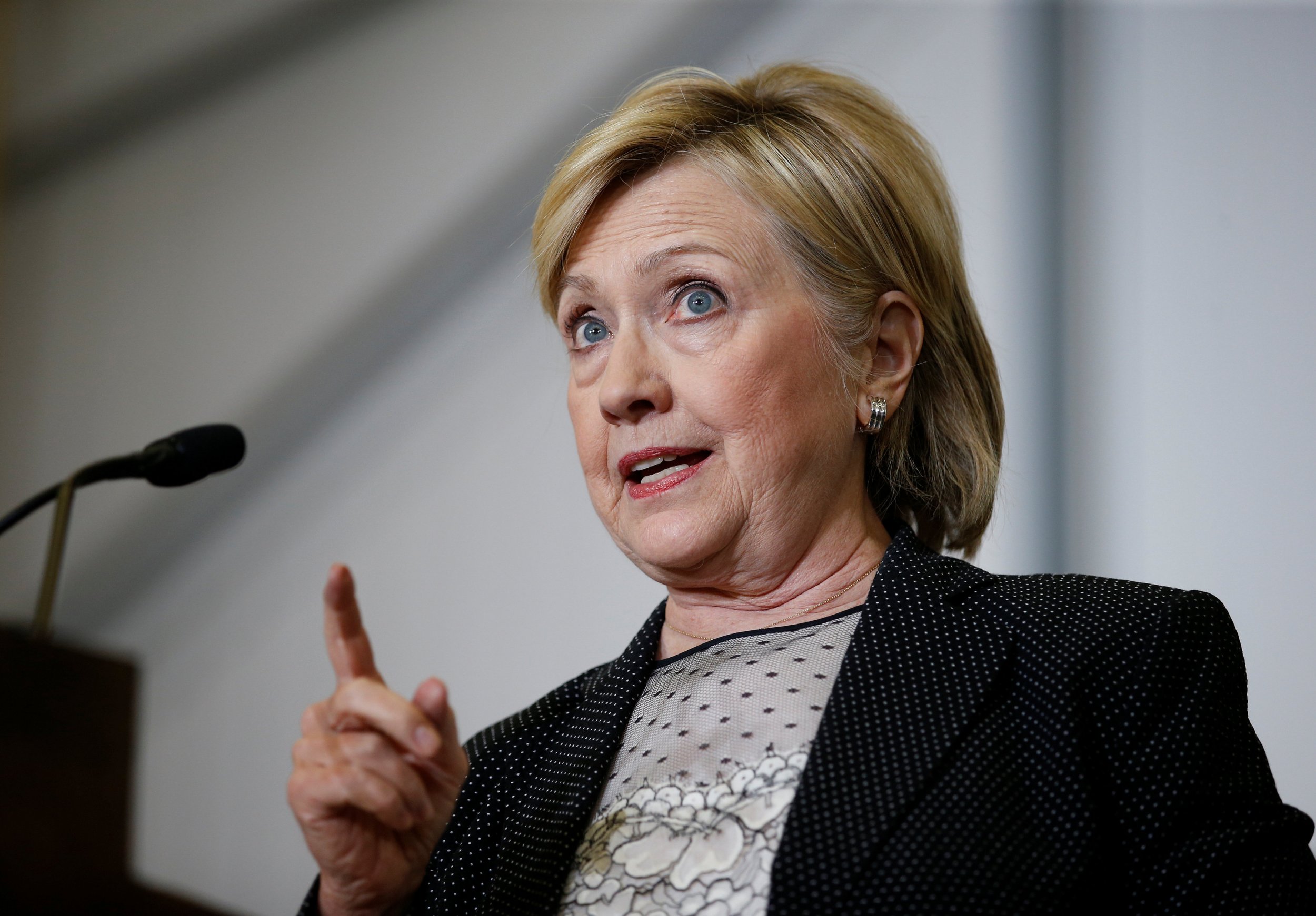
Who is the real champion of the working class? That is the fundamental question Hillary Clinton and Donald Trump posed in dueling economic speeches in Rust Belt Michigan this week, with predictably different answers. On Thursday, it was Clinton's turn, and the Democratic presidential nominee took aim at the image her Republican rival has so cannily crafted on the 2016 campaign trail, using her remarks to try to chip away at his populist veneer and reveal a plutocrat lurking underneath.
Trump's policy proposals, Clinton argued, would benefit the billionaire real estate magnate and his peers, not the millions of Americans drawn to his campaign by the promise that he would halt unfair trade deals and use his business prowess to bring jobs back to the heartland. "There is a myth out there that he will stick it to the rich and powerful because somehow he is really on the side of the little guy," Clinton said in her remarks in Warren, Michigan. "Don't believe it."
Then she methodically waded through the proposals Trump laid out Monday at the Detroit Economic Club, 20 miles away, explaining how each would be a windfall for the wealthy but bring little, if any, relief to poor and middle-class Americans.
"In his speech on Monday, he called for a new tax loophole. Let's call it the Trump loophole," Clinton said, pointing to Trump's proposal to cap taxes on business income at 15 percent. That, she suggested, would mean the Republican candidate would get to "pay a lower rate than millions of middle-class families." She said Trump would also benefit from another of his economic planks—abolishing the estate tax, which applies to estates worth more than $5.45 million, when their wealth is transferred from a deceased person to his or her heirs. But "it would do nothing for 99.8 percent of Americans," Clinton said.
Seeking to portray herself as the practical, solutions-oriented candidate, Clinton said Trump's dark, pessimistic view of the state of American jobs and production didn't reflect reality. It's part of the Democrats' effort, vividly on display at their recent convention in Philadelphia, to be seen as the forward-looking party of can-do optimism. But they also run the risk of sounding too upbeat amid the country's wage stagnation and middle-class struggles. The former secretary of state tried to walk that tightrope Thursday, talking up the country's potential to kick-start a new era of manufacturing and use its competitive advantages in innovation and education to drive economic gains. But Clinton was also quick to point out that the economy remains too unequal, with most of the growth going to the top earners.
"The tide is not rising fast enough, and it certainly is not lifting all boats," Clinton acknowledged. Her solutions: a more progressive tax code; a higher minimum wage; strengthening unions and laws to tamp down child care costs and require paid leave for workers.
She also promised to oppose the Trans-Pacific Partnership and other trade deals she said wouldn't benefit American workers. It was a clear effort to blunt Trump's appeal in the Rust Belt, where many workers have suffered from the steep decline in the once-dominant local manufacturing sector. Trump has made his opposition to free trade deals, past and present, a central part of his campaign, helping him gain a surprising foothold in some traditionally Democratic-leaning, union-friendly states like Michigan and Pennsylvania. Clinton and her campaign are on a mission to win working-class voters in those states back.
Her pitch on Thursday, boiled down: Trump may talk the talk, but he doesn't walk the walk. "He's offered no credible plans...for what working Americans are up against today," she argued, "just a more extreme version of the failed theory of trickle-down economics, with his own addition of outlandish, Trumpian ideas that even Republicans reject."
Uncommon Knowledge
Newsweek is committed to challenging conventional wisdom and finding connections in the search for common ground.
Newsweek is committed to challenging conventional wisdom and finding connections in the search for common ground.
About the writer
Emily spearheads Newsweek's day-to-day coverage of politics from Washington, D.C. She has been covering U.S. politics, Congress and foreign affairs ... Read more
To read how Newsweek uses AI as a newsroom tool, Click here.








